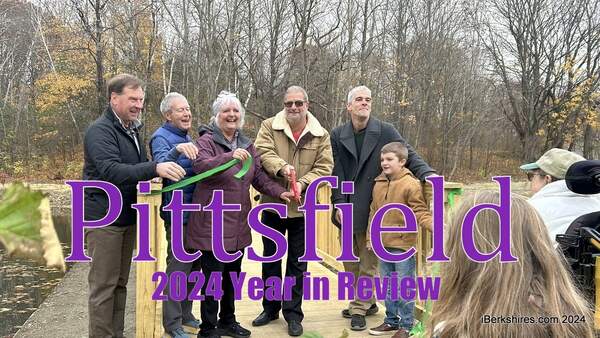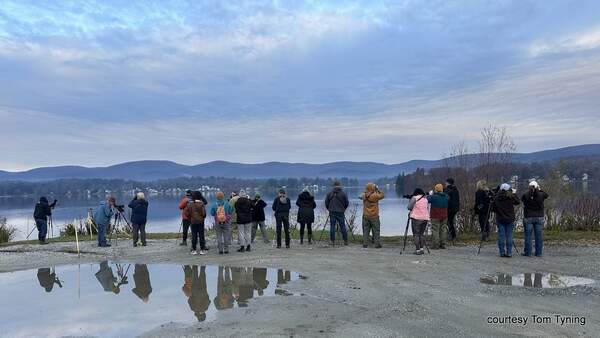Baker-Polito Administration's Commission on Clean Heat Issues Final Report
BOSTON — The Commonwealth's Commission on Clean Heat, established by Governor Charlie Baker through Executive Order 596 in September 2021, issued its final recommendations and report.
According to a press release, the recommendations include the adoption of core principles and practices focused on ensuring an equitable approach to decarbonization of both existing and new buildings, including appropriate resourcing, institutional coordination and alignment; the development and implementation of a Clean Heat Standard, joint natural gas and electric system planning, and analyses of the potential impact of other associated regulatory changes; the reorganization of existing energy efficiency and clean energy transition programs to be more user friendly for residents, businesses, and contractors; and investments in innovation, workforce development, consumer education, and market development to help accelerate the building decarbonization transition.
"As we work to reduce the release of carbon emissions and achieve Net Zero in 2050, the creation of the first-in-the-nation Commission on Clean Heat served as a critical step forward in engaging with a diverse group of experts to provide recommendations that will help Massachusetts decarbonize the building sector," said Governor Charlie Baker. "This set of recommendations is the result of hard work and commitment from the commission members, and we thank them for their dedication to this process."
"The Commonwealth continues to take important climate action measures to achieve our emissions goals by utilizing an equitable and affordable approach that benefits all of the state's residents and businesses," said Lieutenant Governor Karyn Polito. "The members of the Commission on Clean Heat worked tirelessly to develop this substantial and detailed report, which identifies significant strategies to reducing building emissions and we appreciate their work."
On Sept. 20, 2021, Governor Baker signed the Executive Order to establish the Commission on Clean Heat to provide recommendations on the strategies and policies to achieve deep emissions reductions from the use of heating fuels in the Commonwealth. The Commission's recommendations offers a framework for a long-term decline in emissions from heating fuels.
"By creating the Commission on Clean Heat, Massachusetts was able to utilize expertise from a diverse group of respected professionals and stakeholders," said Energy and Environmental Affairs Secretary Beth Card. "The thoughtful work of the Commission members in developing innovative policies and strategies provides critical support to our work to implement affordable and equitable solutions that reduce emissions from homes and buildings throughout the Commonwealth."
"We are grateful for the members of the Commission on Clean Heat, who shared their time and expertise over the past year to develop this report," said Housing and Economic Development Secretary Mike Kennealy. "As Massachusetts continues to build to create much-needed new housing and support economic growth, prioritizing energy-efficient practices across our building sector is key to advancing the Commonwealth's goal of achieving Net Zero greenhouse gas emissions by 2050."
The Commission on Clean Heat's report aligns with the Baker-Polito Administration's 2050 Roadmap report and the 2025/2030 Clean Energy and Climate Plan by providing policy directions that seek to accelerate the deployment of energy efficiency programs and clean heating systems in new and existing buildings, and transition current distribution systems to clean energy. Recommendations contained within the commission's report include:
-
Implementation of a Clean Heat Standard as a regulatory approach to meet the sublimits for the building sector, focusing on electrification and energy efficiency measures.
-
Coordinated joint energy system planning across Massachusetts' gas and electric utilities and municipal gas and electric companies, and in conjunction with key stakeholders and communities, to ease the transition from gas to electric heating by identifying geographic priorities for investment in and/or strategic retirement of energy infrastructure.
-
Development of a Building Decarbonization Clearinghouse to serve as a central point of contact and technical assistance provider for customers for all clean energy solutions- including weatherization, heat pumps, energy efficiency measures, along with solar, storage, and EV charging.
-
Establishing climate finance mechanisms through a Climate Bank to de-risk and mobilize private sector investments for buildings pursuing deep decarbonization measures.
-
Expansion of workforce development programming to address existing gaps in our decarbonization workforce as well as conduct research, develop best practice guidance, and set standards to fill knowledge gaps with respect to decarbonization of the building sector in Massachusetts.
-
Conducting a comprehensive public outreach and awareness campaign and implementing community-level engagement strategies to educate and build the necessary momentum for building electrification across the Commonwealth.
-
Development of a statewide building benchmarking and labeling program to increase transparency on building emissions profiles and encourage building retrofits that improve the climate, health, and economic outcomes across Massachusetts' building stock.
-
Accelerating strategies for decarbonizing the affordable housing sector in Massachusetts through convening key stakeholders, including representatives from multiple state agencies.
-
Development of an analysis and reporting structure for fossil fuel equipment metrics, as well as conducting an analysis of the design of a schedule for phasing out new fossil fuel heating systems in the Commonwealth.
-
Evaluation of opportunities for addressing operating cost barriers to the adoption of clean heating technologies, including programs or credits to help defray costs from electrification, as well as evaluation of cost-reflective rate structures to encourage conservation and reduce operating costs of electric heating systems.
"Building decarbonization is imperative to our long-term decarbonization goals as well as saving households and businesses from reliance on expensive fossil fuels," said Department of Energy Resources Commissioner Patrick Woodcock. "The Commission on Clean Heat's recommendations build on the Administration's efforts to advance new construction that is aligned with our long-term climate goals along with the effort to promote electrification of heating throughout the Commonwealth."
"Decarbonizing existing and new buildings will substantially reduce the Commonwealth's GHG emissions and is central to the Massachusetts Clean Energy Center's work," said MassCEC CEO Jennifer Daloisio. "The Commission's work is charting the path for our Commonwealth to reduce and eliminate emissions from our buildings and ultimately achieve our net zero goals. We look forward to incorporating the Commission on Clean Heat's relevant recommendations into our programming."
For more information regarding the Commission on Clean Heat, its members, and the final report, please visit the Commission's webpage.
Tags: efficiencies, energy efficiency,















